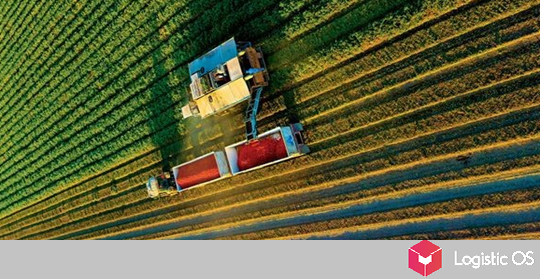According to the Russian Ministry of Agriculture, last year investments in fixed capital of the agro-industrial complex exceeded 1 trillion rubles.
Over the past year, farmers spent over 1 trillion rubles on the purchase of equipment and agricultural machinery, breeding animals, as well as on land reclamation work and planting perennial crops. This was stated by the Minister of Agriculture Oksana Lut.
At the same time, a significant part of these funds were state program funds. According to the minister, almost 450 billion rubles were allocated for it last year, and the level of utilization of these funds is close to 100%.
In addition, Russian farmers continue to show a very strong interest in preferential loans; in 2023, banks issued more than 1.3 trillion rubles under such programs.
As for small businesses in the agricultural sector, there is a special program for it; in 2023, about 20% of the federal budget was spent to support such businesses as part of an incentive subsidy.
Another source of funds for farmers, of course, is exports.
Last year, exporters were able to generate $43.5 billion in revenue, which represents an important record, Lut said.
It is especially noteworthy that the volume of supplies of processed products abroad is growing.
In particular, exports of sugar, sunflower and rapeseed oils, as well as flour increased. For the first time in history, its deliveries exceeded 1 million tons, which is a significant increase compared to the previous year – by 25%.
In general, Russian farmers are showing a significant increase in investment, notes Georgiy Ostapkovich, director of the Center for Market Research at the National Research University Higher School of Economics.
However, an increase in investment in the agricultural sector, unfortunately, does not always mean an increase in yield due to the influence of a large number of factors, for example, the labor market and weather conditions.
If we talk specifically about the current year, then there is reason to believe that the agricultural production index will be lower than last year, since personnel problems have not gone away, plus they have been added to the difficulties associated with the onset of late frosts in a large part of the country.
At the same time, other experts refer to the fact that in the last 6 years the volume of investments in the agro-industrial complex has been growing, but at a fairly low pace.
The situation is complicated by the fact that, for the most part, enterprises have to invest their own funds.
Analysts see the danger that at this rate it will not be possible to achieve the government’s goal of increasing investment in fixed capital of the agricultural sector by 60% by 2030 compared to the 2021 level.

